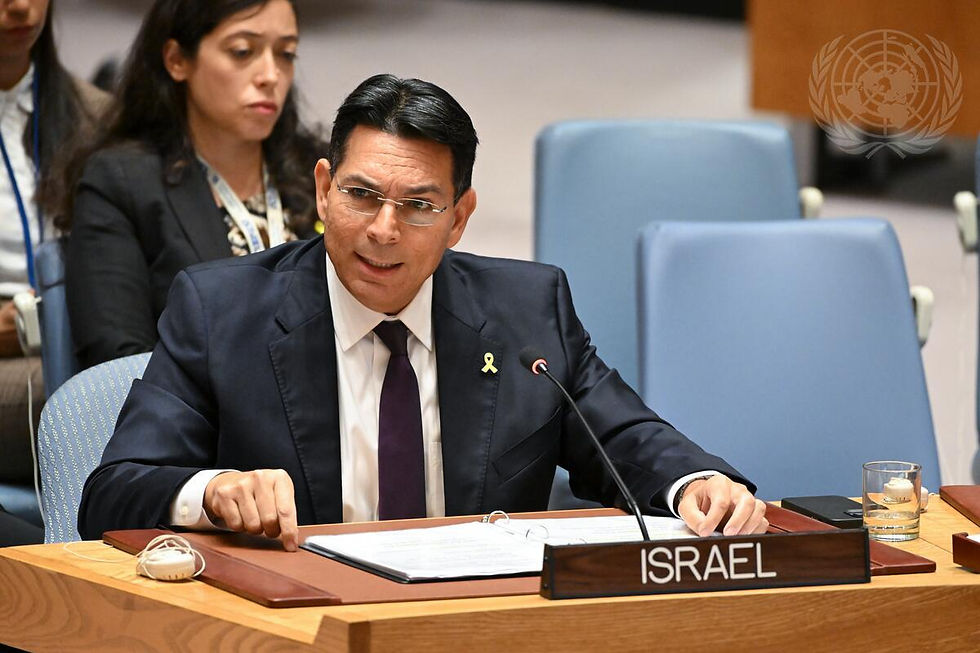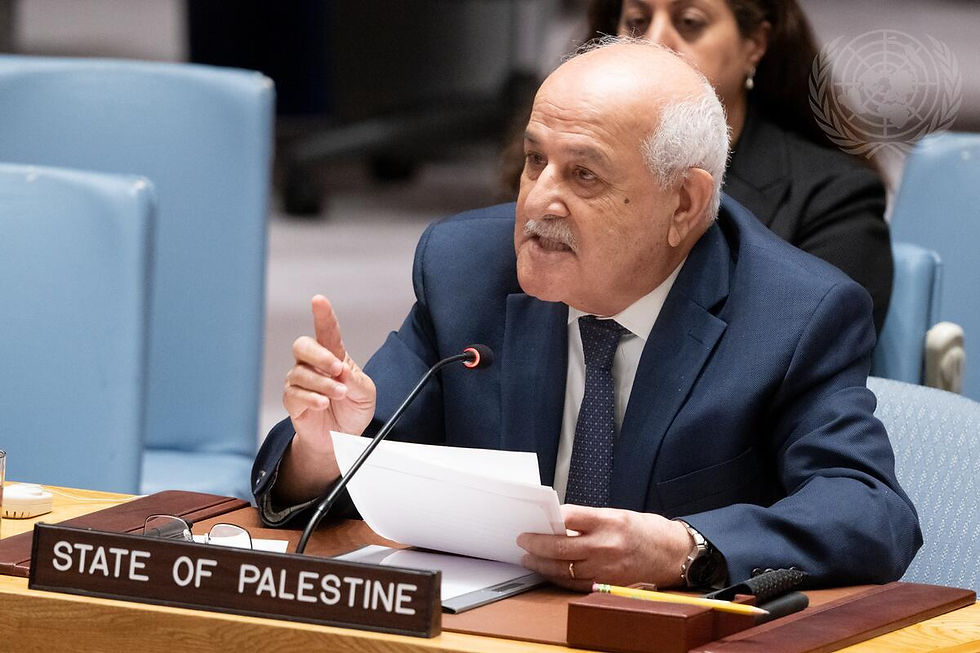Rhetoric Over Reason: Danon’s Clash with Mansour at the UN
- Ahmed Fathi
- Aug 22, 2024
- 2 min read


By: Ahmed Fathi
New York: On Thursday (Aug 22) during the UN Security Council debate, Israel’s Ambassador Danny Danon labeled State of Palestine UN Observer Ambassador Riyad Mansour as “a terrorist in a suit,” a statement that reflects more on the deteriorating state of diplomacy than on any credible assessment of Mansour’s role. Such incendiary rhetoric not only undermines the potential for constructive dialogue but also further entrenches the hostility that has long plagued Israeli-Palestinian relations.
Danon’s accusation is a grave mischaracterization. Mansour has been a diplomat for decades, representing the Palestinian people in one of the most challenging international arenas. To dismiss his efforts as merely inciting hatred and violence ignores the complexities of the Palestinian struggle and reduces a legitimate national liberation movement to a one-dimensional narrative. The suggestion that Mansour is aligned with terrorist organizations because he has not explicitly condemned Hamas in his speeches is a simplistic and dangerous oversimplification of the political landscape.
It is worth noting that diplomacy at the United Nations is a balancing act, often requiring representatives to navigate a minefield of sensitivities and strategic silences. Mansour’s failure to condemn Hamas in a specific speech does not equate to an endorsement of their actions. To insinuate that he is “one of them” is an attempt to delegitimize the Palestinian leadership and, by extension, the Palestinian cause.
Moreover, Danon’s criticism of the Security Council’s silence on the October 7 attacks, while understandable from an Israeli perspective, overlooks the broader context in which these debates occur. The Security Council’s inability to reach consensus on issues related to the Israeli-Palestinian conflict is not due to a lack of concern for victims but rather the result of deep-seated geopolitical divides. Blaming the Council for its inaction ignores the complexities that have long stymied progress in this conflict.
In an arena where words are as powerful as actions, Danon’s choice to escalate his rhetoric does a disservice to the pursuit of peace. Instead of fostering understanding or seeking common ground, his remarks further polarize an already divided landscape. The road to peace requires dialogue, respect, and a recognition of the legitimate grievances of all parties involved. Calling a diplomat a “terrorist in a suit” is not only a reckless statement but also a tragic reminder of how far we still have to go.

Comments